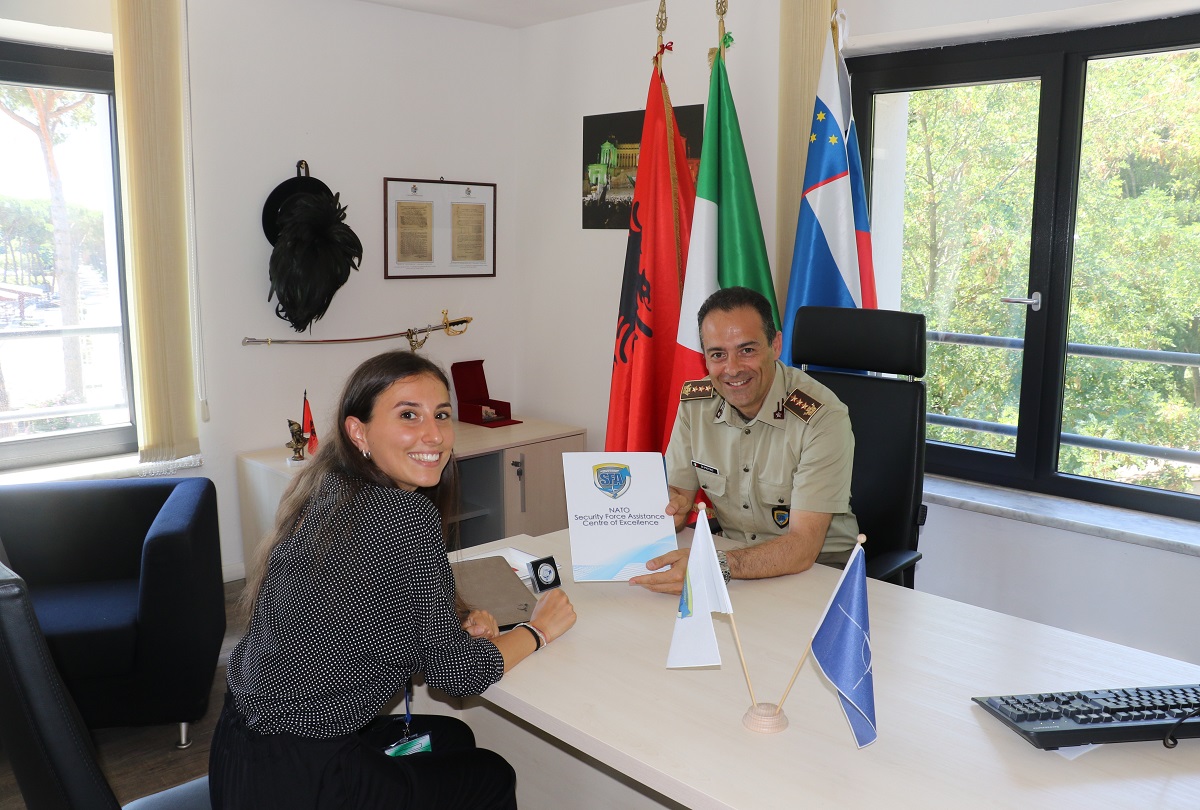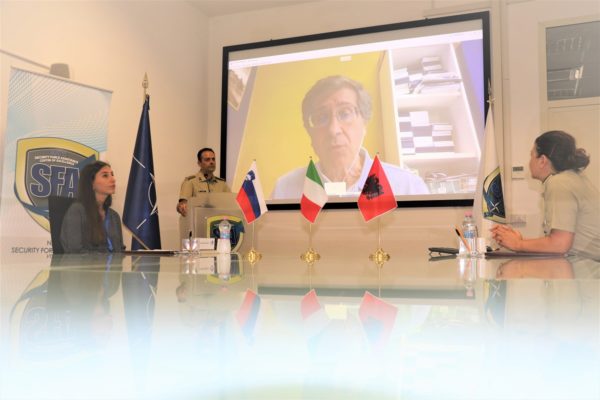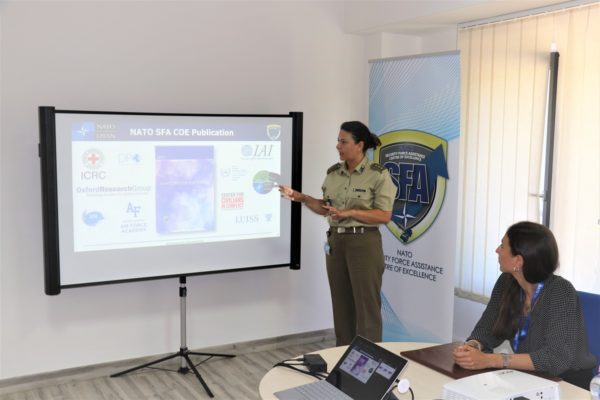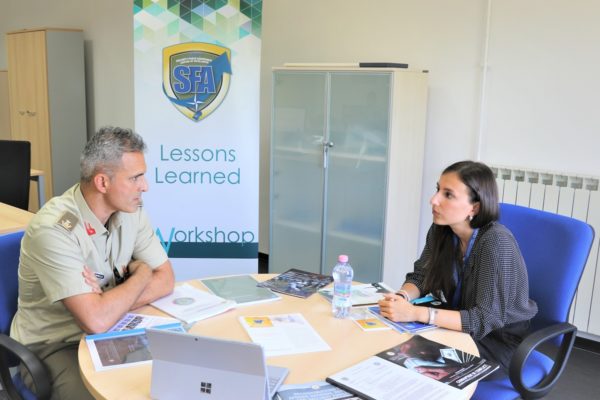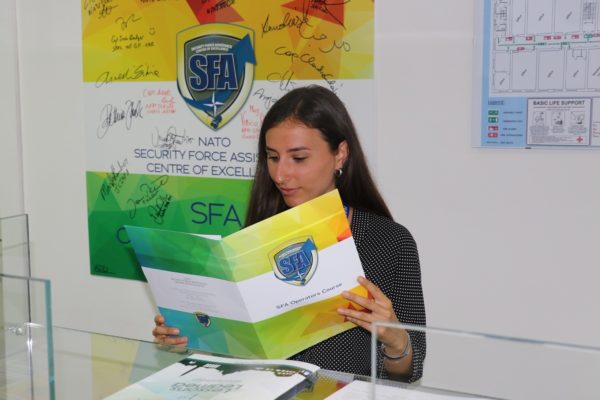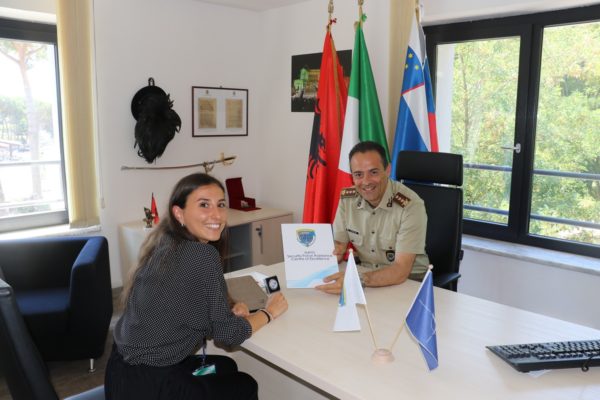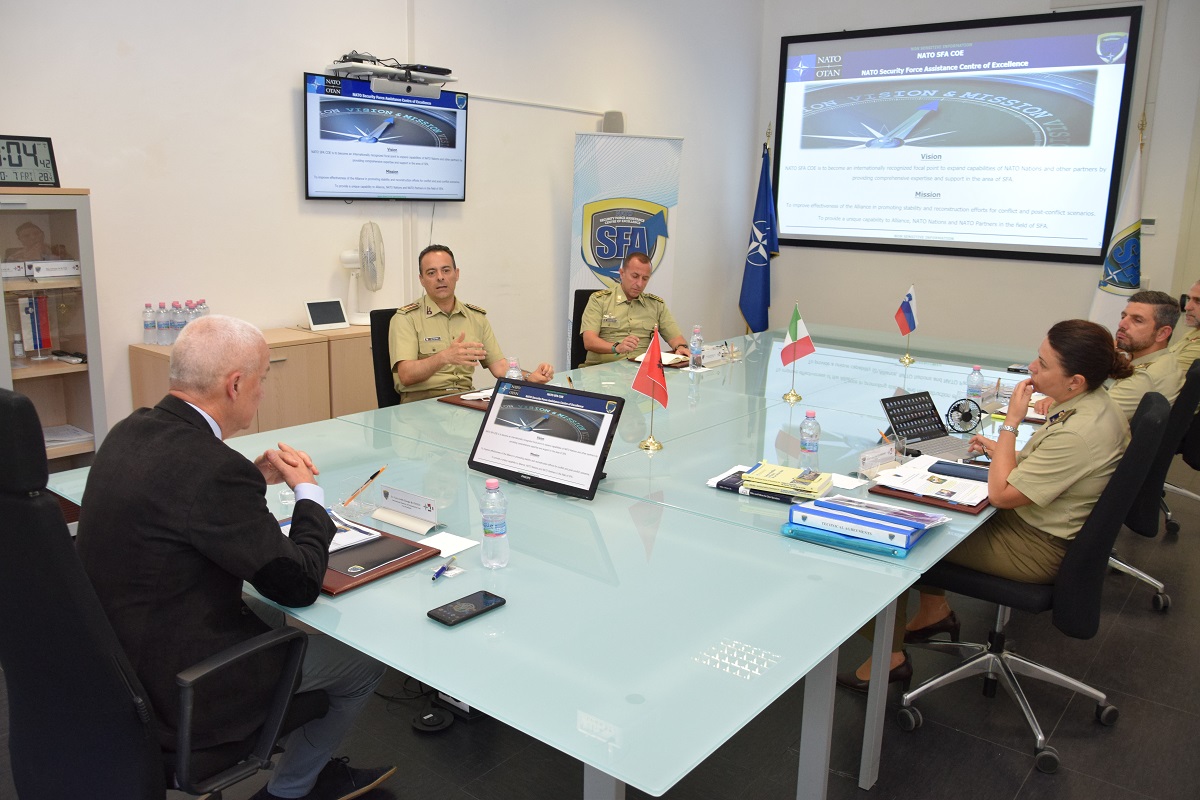The Director of the NATO Security Force Assistance Centre of Excellence (NATO SFA COE), Col Massimo Di Pietro, sanctioned the launch of the first curricular internship project for students enrolled at the Libera Università Internazionale degli Studi Sociali “Guido Carli” (LUISS University).
The agreement, that was signed last January with the General Director of the LUISS University, Giovanni Lo Storto, has as its objective the joint participation of Subject Matter Experts in research activities, courses and conferences, as well as an Internship project aimed at producing a publication on the respect for the Rule of Law in crisis areas.
Security Force Assistance (SFA) includes all those activities aimed at strengthening or improving the development of Local Forces and the Associated Institutions of an assisted nation in order to render them autonomous in their tasks and functions.The Internship project involves the analysis and study of some success factors of SFA in maintaining long-term safety and stability. In particular, in the context of Human Rights and International Humanitarian Law, specific issues concerning the Protection of Civilians and the protection against gender violence will be analysed. In addition, the importance of developing anti-corruption programs in crisis areas will be highlighted, as a tool for strengthening the legitimacy of local governmental authorities (Building Integrity).
The NATO SFA COE editorial project, with the support of the academic Internship, will include contributions by the representatives of the main International Organizations in the policy and legal sector (NATO International Military Staff, International Criminal Court, International Committee of the Red Cross, United Nations’ Rule of Law Office, etc.).
The NATO SFA COE internship offers the students a unique and highly formative opportunity, for gaining knowledge of the roles and tasks of national and foreign Armed Forces in the complex international scenario.
Finally, the cooperation of the Centre of Excellence with the academic world is important for the development of doctrine and experimentation regarding new concepts of Security Force Assistance both among NATO countries and partners.








